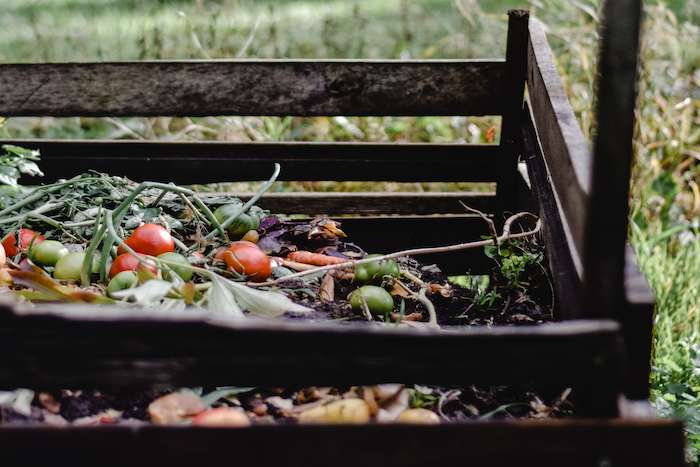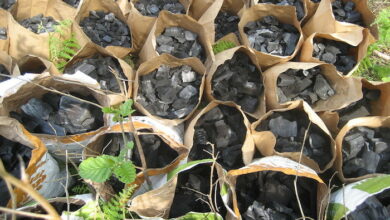
8 Eco-Friendly Ways To Manage Garden Waste
Gardening is a fulfilling activity that brings joy to many, transforming spaces into lush green havens home to countless varieties of plants and vegetables. Yet, this often leads to the production of an overwhelming amount of garden waste. Effectively managing this waste in an eco-friendly manner is crucial to maintaining the balance of our natural environment.
By incorporating permaculture principles, such as composting and mulching, gardeners can harness the potential of their waste to create a closed-loop system. Composting allows organic matter to decompose naturally, generating nutrient-rich soil amendments that nourish plants and reduce the reliance on chemical fertilizers. Similarly, mulching involves using organic materials like leaves or wood chips to cover the soil, fostering moisture retention, weed suppression, and soil enrichment over time.
In addition to the valuable contributions of permaculture, you can use other techniques to manage garden waste. This article aims to provide a comprehensive guide to eight eco-friendly methods.
Make Leaf Mold
Making leaf molds is another effective method of recycling garden waste. It involves gathering fallen leaves and allowing them to decompose over time in a designated bag or bin. This process relies on the natural decay process, requiring minimal intervention. After several months, these decomposed leaves transform into leaf mold, an excellent soil conditioner. This product enriches your garden soil by improving its structure and increasing its ability to retain water. Ultimately, it boosts your plants’ health while reducing waste, exemplifying eco-friendly gardening.
Suppose non-organic items or toxic rubbish get mixed with the leaf mold. It’s best to hire an environmentally responsible junk removal service company, like EZ Junk Removal, to collect and repurpose such non-compostable waste.
Utilize Wood Chipping

Wood chipping is an innovative way to manage garden waste, especially when you’ve pruned trees or bushes and have leftover branches. This technique involves shredding the branches into small pieces or chips. These chips can then be repurposed in many ways. For example, they can be used as mulch, which aids in suppressing weed growth, retaining soil moisture, and moderating soil temperature. Alternatively, they can be used as a natural material for creating garden paths. Wood chipping thus turns potential waste into valuable garden resources, championing eco-friendly gardening.
Start A Compost Pile
Starting a compost pile offers an ingenious solution to garden waste. Composting transforms organic waste into a fertile soil supplement. You establish a compost heap by piling up and breaking down your garden waste, which can consist of grass clippings, fallen leaves, and healthy plant parts. This approach minimizes the waste that would otherwise require disposal and generates nutrient-dense compost that boosts your soil’s quality, promoting healthier, more robust plant growth. It’s a sustainable practice that’s beneficial for both your garden and the environment.
Create A Wildlife Habitat
Creating a wildlife habitat with garden waste is a unique and environmentally friendly approach to waste management. Piles of wood, leaves, and grass cuttings can serve as refuges for various wildlife species, from hedgehogs to insects. These miniature habitats not only help reduce waste but also enhance biodiversity in your garden. Such a practice fosters a balanced ecosystem by inviting beneficial fauna, and promoting natural pest control and pollination, thereby enriching the overall garden experience while reducing environmental impact.
Construct A Hugelkultur Bed
Constructing a hugelkultur bed is an innovative gardening technique that uses garden waste, especially wood debris. Hugelkultur involves creating a raised garden bed using decomposing logs, branches, and twigs as the foundational layer, covered by layers of compost and soil. This method offers a double benefit: it recycles wood waste and forms a fertile, well-draining, and warm growing area for plants. Over time, the decaying wood becomes a reservoir of nutrients and moisture, making the hugelkultur bed a highly productive and sustainable gardening solution.
Try Vermiculture
Trying vermiculture is a fascinating and effective approach to managing organic waste. This method involves using certain types of worms to eat organic waste, such as fruit and vegetable peelings, coffee grounds, and eggshells. As they consume this waste, the worms produce two valuable byproducts: nutrient-dense compost, also known as worm castings, and a liquid fertilizer called worm tea. These outputs are excellent soil additives that can significantly enhance your garden’s health and productivity, thereby turning your waste into a resource in a very eco-friendly way.
Install A Green Cone Digester
Installing a green cone digester is a modern, efficient way to manage kitchen and garden waste. This specially designed device is partially buried in the ground, employing a natural process to compost organic waste. What sets it apart is its capacity to handle nearly all types of organic waste, even cooked food waste, which is typically challenging to compost. The green cone digester accelerates the composting process, turning your waste into a nutrient-rich supplement for your soil, thus promoting a cycle of sustainable gardening.
Reduce The Waste You Create
Reducing the waste you create in your garden is fundamental to eco-friendly gardening. One way to achieve this is by selecting plants well-suited to your local conditions, reducing the chances of plant failure and subsequent waste. Additionally, incorporating mulching into your gardening routine helps suppress weed growth, conserve moisture, and regulate soil temperature, thereby fostering optimal conditions for plant growth. This can benefit plant health and minimize water waste. By adopting these practices, you can significantly minimize garden waste while promoting a sustainable and resource-efficient approach to gardening.
Conclusion
These eco-friendly methods offer different ways to manage garden waste, ensuring we protect the environment while maximizing our gardening efforts. We hope these ideas have inspired you to try an eco-friendly approach to managing your garden waste. Let’s all nurture our planet, making it greener and healthier for future generations. The path to a more sustainable world starts in our backyards.












